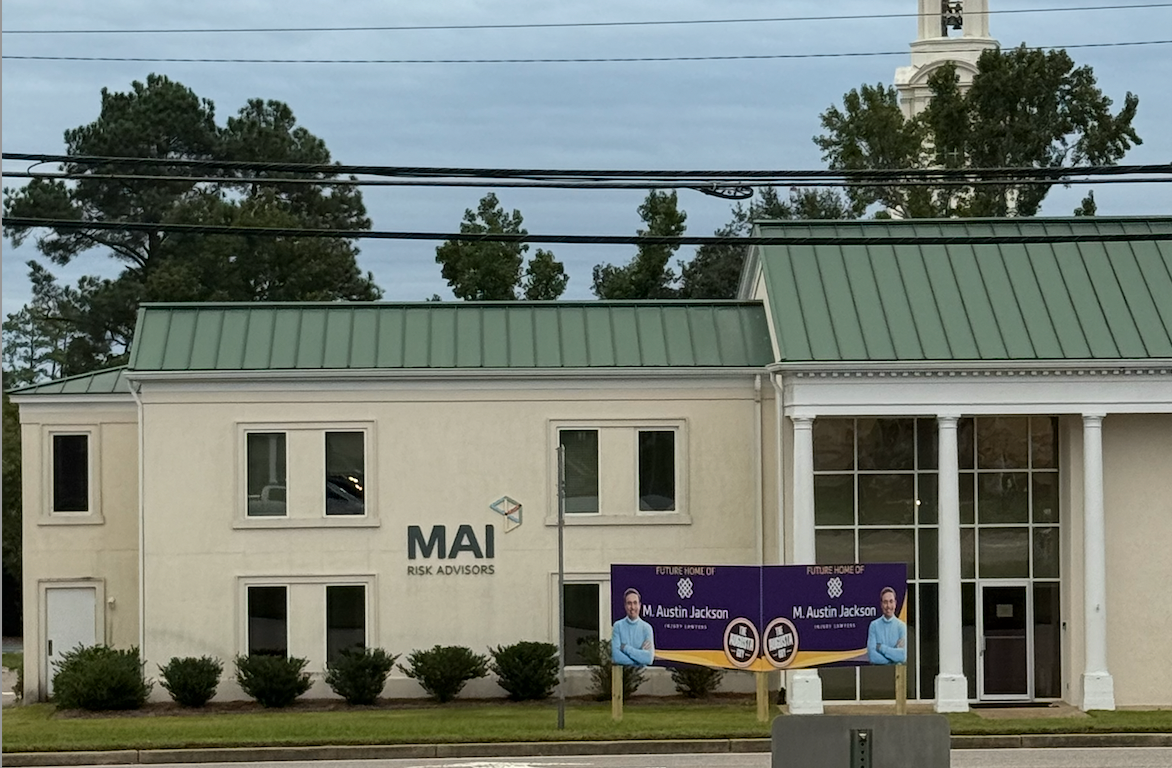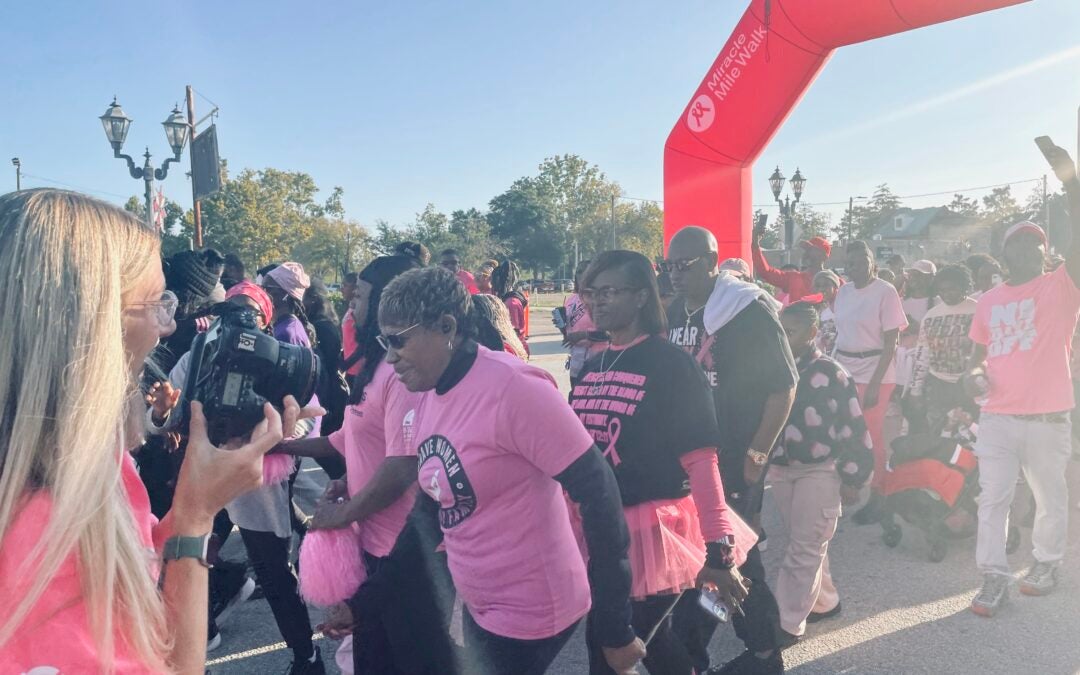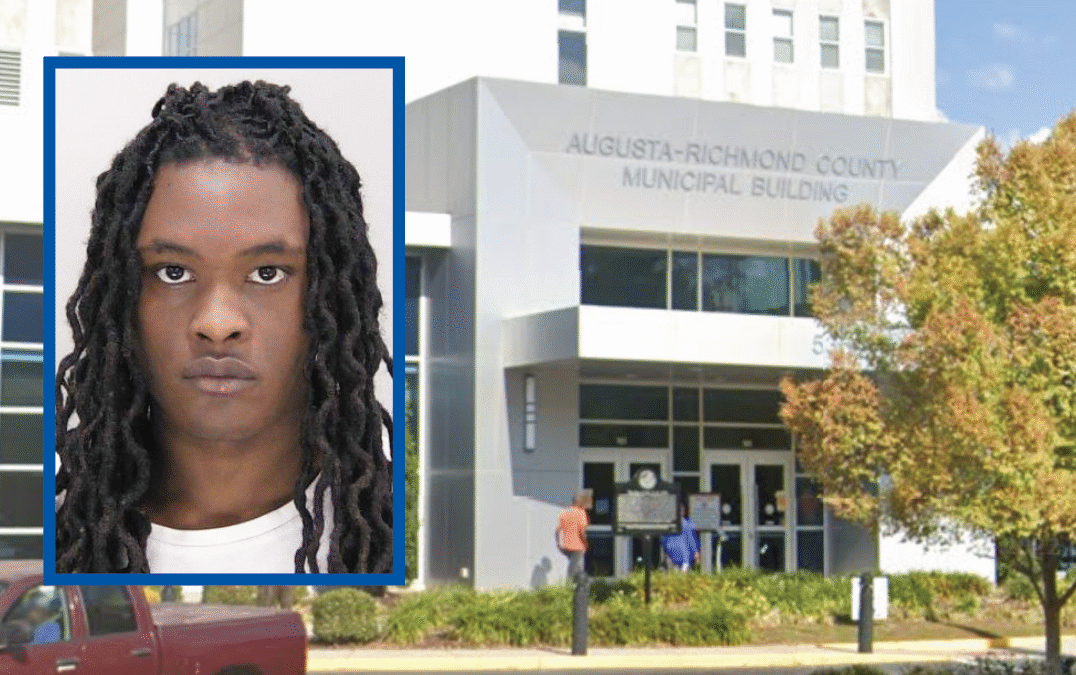Local insurance company MAI Risk Advisors recently sold its headquarters on Wheeler Road to a personal injury law firm.
Office buildings change hands regularly in Augusta, but this transaction stands out.
MAI, whose former tagline was “People Over Profits” sold to a private equity firm in December 2023 in what appeared to be a quick payday for the owners — while much of its staff walked out the door over the next two years.
According to a news release on MAI’s website, the firm merged with private equity–backed Main Street Insurance Group in December 2023. Earlier that same year, MAI was in hiring mode, seeking to expand its staff of more than 15 employees. Less than two years later, the team has dwindled to only a handful, and the firm has relocated to a building less than one-third the size of its former headquarters.
The company’s “About Us” page lists no staff profiles—only a video featuring one licensed agent, Steve Munns, and agency owner Forester Adams. Its social media pages have been silent throughout 2025.

While many private equity mergers with local insurance agencies result in growth, MAI’s merger appears to have benefited only ownership. The fallout has left a trail of displaced employees — some joining other agencies, others retiring or leaving the industry altogether.
Personal injury law firms vs. insurance brokerages
In Georgia, one of the biggest nemeses of insurance brokerages is the personal injury law industry, which has grown into a powerful and aggressive force.
For MAI, selling such a prominent site to a personal injury firm feels to many in the industry like ceding ground to an adversary. Symbolically, it’s a blow to those who have long viewed personal injury lawyers as their professional opposition.
Personal injury attorneys thrive on litigation and large settlements, often positioning insurance carriers and brokers as villains in their advertising. Their marketing is relentless — billboards, TV commercials, and social media ads flood cities like Augusta —urging accident victims to “fight the insurance companies” for payouts.
For brokerages, this creates an uphill battle. Exaggerated claims and frequent lawsuits drive up premiums, strain carrier relationships, and erode public trust. Georgia’s legal climate has become increasingly plaintiff-friendly, fueling large verdicts and renewed calls for tort reform at the state Capitol.
Why sell to the “enemy”?
For MAI, surrendering such a visible location to a personal injury firm might seem like poor optics to longtime clients, but it may have been a financial necessity.
Over the past decade, the insurance brokerage industry has undergone sweeping consolidation, led by private equity firms eager to invest in reliable, cash-flow-driven businesses. Independent agencies — once local and relationship-based — have found that selling to private equity–backed platforms offers financial stability, scale, and operational resources that are otherwise difficult to build.
Some Augusta firms have fared well in similar deals.
Blanchard & Calhoun Insurance merged with Norton Insurance in 2020 to form Legacy Risk Solutions LLC. The firm’s website lists 10 staff members despite the recent retirement of longtime local leader Preston Moss.
ACHS, founded in 1990, merged with private equity firm Acrisure in 2015 and completed its rebrand in 2024. The agency has experienced significant growth since the merger.
For MAI, however, the outlook appears bleak. The company has reduced its staff by nearly 80% and its footprint by 60%. Combined with the sale of its highly visible office to a personal injury firm, the future looks uncertain.
One thing is clear: The industry is primed for more consolidation, and locally managed agencies are watching closely as MAI’s struggles unfold.
Why private equity mergers fail
Several factors can lead to the failure of private equity mergers in the insurance sector. A review of national industry reports highlights four common causes:
- Centralized control and layoffs: Cutting local staff, forcing new compensation models, and removing autonomy often trigger morale issues and drive top producers to leave. When producers go, clients follow, and the resulting revenue loss can strain debt obligations and lead to further downsizing — or collapse.
- Integration fatigue: Many mergers fail when technology systems, contracts, and compensation structures don’t align. Poorly planned integrations frequently result in operational breakdowns and staff attrition.
- Loss of entrepreneurial culture: Independent agencies thrive on local relationships and flexibility. Private equity ownership often erodes that spirit, leading to stagnation.
- Weak leadership: Agencies with mediocre leadership before a merger are often ill-equipped to manage new technologies, carrier demands, and performance expectations under a larger corporate structure.








